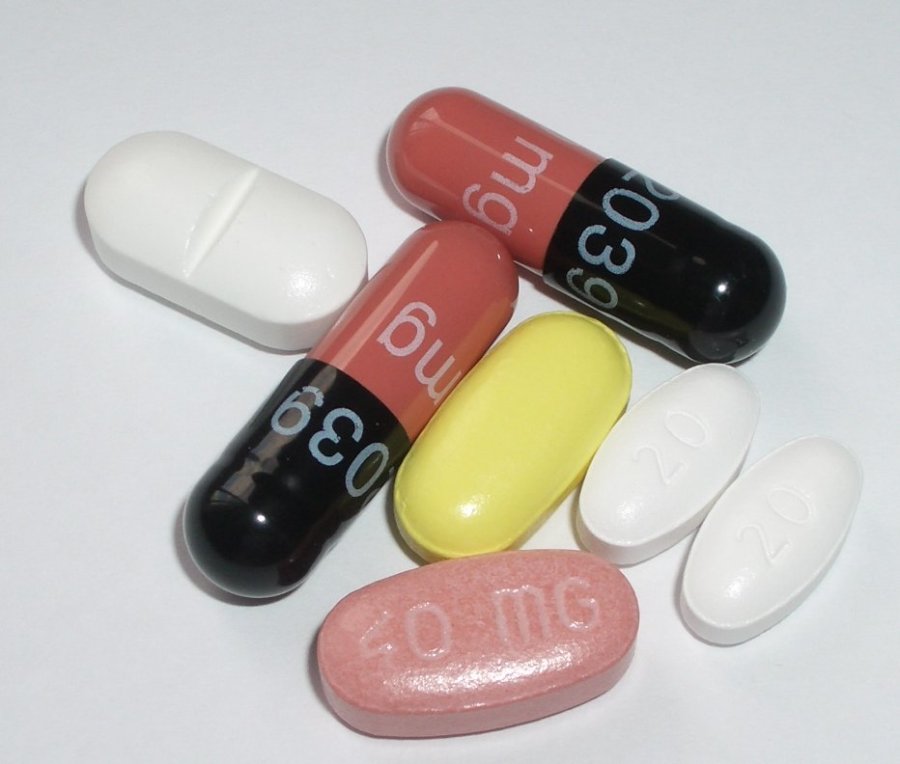Trouble Swallowing Pills? You’re Probably Doing It Wrong, Study Says
November 25, 2014
If you have trouble swallowing pills, it’s not your fault. You’ve just been doing it wrong. And now a group of German experts is ready to show you a better way. Two ways, in fact.
The first is the “pop-bottle method,” and it makes tablets go down with ease. The second is the “lean-forward technique,” which sends capsules straight down the throat. Both have been rigorously tested by 151 volunteers who swallowed numerous dummy pills for the sake of science. And now they are being shared with the world via their publication in the Annals of Family Medicine.
Before we proceed, a little background. The researchers — all members of the Department of Clinical Pharmacology and Pharmacoepidemiology or the Department of Pharmaceutical Technology and Biopharmaceutics at the University of Heidelberg — were acutely aware that pills pose a real problem for many patients. Among those who have trouble taking their medicine, about one-third wind up gagging, choking, throwing up or blocking their throats with their pills.
This is more than a discomfort for patients (though it surely is). It also causes patients to reduce the dose of their medications, or skip it altogether. And studies show that these behaviors make patients’ medical problems worse and more expensive to treat.
So the researchers devised four shapes of capsules and tablets, including round, oval and oblong. Each came in four sizes, for a total of 16 placebos.
Next came the 151 volunteers. These men and women ranged in age from 18 to 85, and slightly more than half reported some difficulty taking pills.
The researchers asked the volunteers to close their eyes and do their best to swallow each of the 16 test pills with 20 milliliters of water. All capsules and tablets were rated for their ease (or difficulty) of swallowing, using an eight-point scale. For each volunteer, the “large” and “very large” sizes of the pill shapes that caused the most trouble were used for the rest of the experiment.
In most cases, tablets were the biggest problem. The solution offered by the German experts was the pop-bottle method. That involves putting a tablet on the tongue and closing one’s lips around the opening of a flexible plastic water bottle. Then it’s time to take a drink, “keeping contact between the bottle and your lips by pursing your lips and using a sucking motion,” according to the Annals study. By swallowing both water and pill right away, there’s no chance to think twice — the medicine slides right down the hatch.
It worked. About two-thirds of those who said they had trouble swallowing tablets reported improvement while using the pop-bottle method, the study authors found. Even among those with no swallowing difficulties, the pop-bottle approach made things easier for 71 percent of volunteers taking large tablets and 64 percent of those taking very large tablets.
Capsules were less of a problem than tablets, but the German experts had a trick for these pills too. In the lean-forward technique, you put a capsule on your tongue and take a sip of water but don’t swallow it immediately. Instead, you “bend the head forward by tilting your chin slightly toward your chest.” Then, keeping the head in this downward position, you swallow capsule and water together.
It may sound counterintuitive to tilt your head forward rather than backward, but it worked even better than the pop-bottle method. Everyone who tried it with very large capsules rated it an improvement over their previous swallowing method, as did 91 percent of people with no history of swallowing problems who used it on large capsules and 82 percent of their counterparts who did report swallowing difficulties.
Other evidence that these two swallowing methods were superior included higher rates of successful swallows on the first try; fewer reports of an “unpleasant feeling in the throat”; and fewer cases of pills being lodged in the throat.
Most tellingly, “85.6 percent of participants said they would adopt these methods in their daily routines,” the German study authors wrote. They concluded that both methods “should therefore be generally recommended.”
———
©2014 Los Angeles Times
Visit the Los Angeles Times at www.latimes.com
Distributed by MCT Information Services








